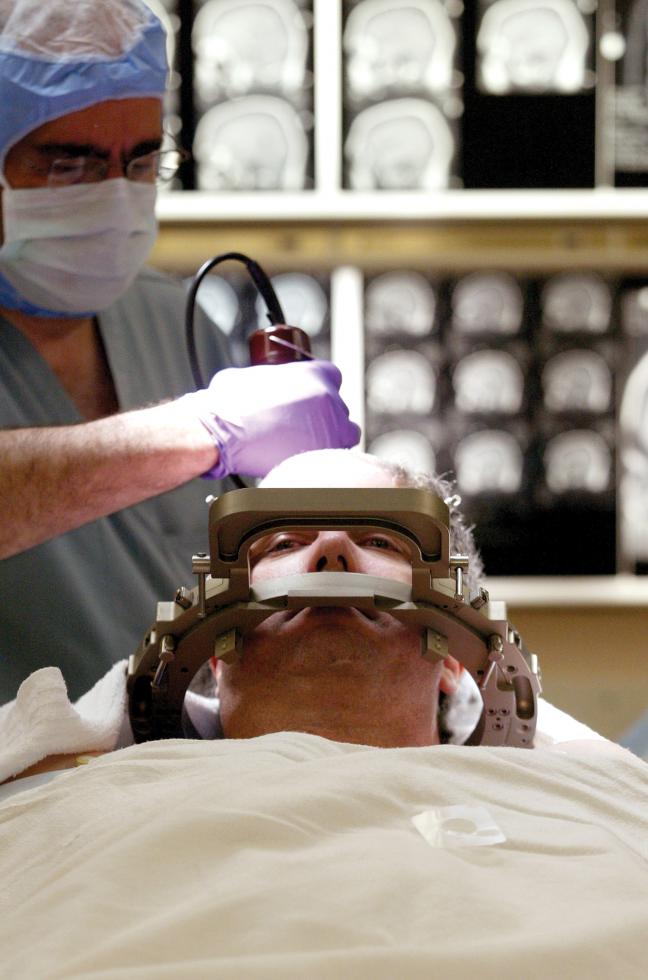Researchers have found that decision making can exhaust the
brain.

What’s your brain doing right now? What was it doing when you woke up, got hungry, went to work, danced, made love, got angry, got happy, fell asleep and dreamed? Judith Horstman is a local writer and frequent Comstock’s contributor. Her new book, “The Scientific American Day In the Life of Your Brain,” chronicles hour-by-hour what goes on in your brain through a typical day and night.The following is an excerpt from the 11 a.m. chapter, “Decisions, Decisions and More Decisions.”
You began making decisions, really, before you were even completely awake: Hit the snooze button, or roll out of bed? Shower or not? Black shoes or brown?
Right about now, approaching midday, you could be overwhelmed by choices. Your brain will have taken in and organized vast amounts of data. You will already have made literally thousands of decisions, large and small, and this will continue until your brain takes you into sleep again.
Life is jam-packed with choices and decisions. Most of them are trivial, but some, such as medical, financial and moral decisions, are quite momentous. Researchers have long been interested in how your brain makes all these choices — in particular, how we make moral choices, especially when under stress — and in the role of intuition and the subconscious in choice. The subject and processes are complex, and researchers are discovering much about how our brains choose among variables. They are also discovering that contemplating options and making choices tires out our brain and makes thinking less effective, which could lead us to make worse decisions.
Choosing wearies your brain
Cheesecake, apple pie or chocolate decadence cake? Having too
many choices may seem like a good thing, but it sure can be
tiring. And like an overworked muscle, a tired brain is less
effective.
A clutch of studies shows that people faced with many choices lose focus and later find it hard to make subsequent choices, even if they’ve been participating in something seemingly fun, like choosing gifts for a wedding registry. One study looked at several situations involving about 400 people and choice making. In some cases, they were asked to choose; in another case, they simply had to contemplate the options. University of Minnesota psychologist Kathleen Vohs and colleagues found that those who had been busy making choices performed worse on math tests afterward, compared to those who looked at options without making a choice. Making decisions seemed to deplete mental energy, Vohs said.
In the past, researchers studying actions that tire the brain’s executive functions focused on activities that â?¨involved exertion of self-control or the regulation of attention. The result of this recent study suggests that taxing mental activities may actually be much broader in scope and affect both commitment and trade-off resolutions. For commitment, the brain has to switch from a state of deliberation to one of implementation. In other words, you have to make a transition from thinking about options to following through on a decision. This switch, according to Vohs, requires executive resources.
If making choices depletes your brain’s executive resources, then decisions downstream might not be optimal when we’re forced to choose with a fatigued brain.
Moreover, the mere act of resolving trade-offs may wear your brain out, according to an investigation by Yale University professor Nathan Novemsky and his colleagues. In one study, the scientists showed that people who only had to rate the appeal of different options were much less depleted than those who had to make choices among the same options.
These findings have important implications. If making choices depletes your brain’s executive resources, then decisions downstream might not be optimal when we’re forced to choose with a fatigued brain.
Indeed, University of Maryland psychologist Anastasiya Pocheptsova and colleagues found exactly this effect: Those who had to regulate their attention, which requires executive control, made significantly different choices from people who did not. These different choices followed a specific pattern. People became reliant on what the researchers called a more simplistic and often inferior thought process and were vulnerable to “perceptual decoys.” For example, participants were asked to ignore interesting subtitles as they watched an otherwise boring film clip. When they were then presented with choices, they were much more likely to choose an option that stood next to a clearly inferior “decoy” — an option that was similar to one of the good choices but was obviously not quite as good. Participants who watched the same clip but were not asked to ignore anything weren’t as vulnerable to decoys.
It seems that trying to ignore an interesting item just plain exhausted the limited resources of the executive functions, which leads to this good advice: Take this into account when making decisions. If you’ve just spent lots of time focusing on a particular task, exercising self-control or making lots of seemingly minor choices, then you probably shouldn’t try to make a major decision.
The brain has a section for regret
So you went for the cheesecake during your late-morning break,
and now you’re sorry. It’s human nature to sometimes regret a
decision: Your medial orbitofrontal cortex and some French
researchers know all about that feeling of remorse. Giorgio
Coricelli and his colleagues at the Institute of Cognitive
Sciences at the National Science Research Center in Bron, France,
used fMRI scans to monitor how people make decisions and how they
feel about them after the fact. The team presented volunteers
with two choices, one of which carried higher risk than the other
but had the potential for greater reward as well. After choosing,
the volunteers were told the outcome of their decision. In some
cases, the researchers also revealed what would have happened if
they had made a different choice. Learning that the choice not
taken was better than the one they chose was strongly correlated
with activity in the medial OFC, which sits above the orbits of
the eyes in the brain’s frontal lobe.
The amount of OFC activity was tied to the level of regret, and that in turn corresponded to the difference between the result of the selected choice and that of the alternative outcome. But when there was no choice — when participants were assigned one of two possibilities and felt no control over the outcomes — there was no remorse activity in the brain at the results. This suggests that a feeling of personal responsibility is involved in feelings of regret. This may not be such a good thing since people who don’t feel regret may not be able to change their behavior to avoid other situations that would end with regret.
Like choosing that cheesecake.
Excerpted from “The Scientific American Day In the Life of Your Brain” by Judith Horstman. Copyright © 2009 by John Wiley & Sons Inc. and Scientific American. Reprinted with permission of the publisher, John Wiley & Sons Inc.
Recommended For You

Brain Drain
How can Sacramento keep its millennials in the mix?
About a decade ago, as a financial analyst for Intel, I lived in the suburbs of Santa Clara and frequently traveled to Folsom. It was a good job, especially for a kid straight out of college — decent pay, strong company and the lure of glittering stock options.
So I left.

Brain Power
Research and development is the foundation for regional manufacturing growth
Like an oil derrick with arms, the school-bus-yellow robot is the center of attraction in an otherwise colorless room dominated by metal castings and concrete floors. Moving like a mime on a street corner, the robot picks up a metal casting, holds it to a computer-run camera and then places the part and the fixture that holds it on a machine for tooling.


